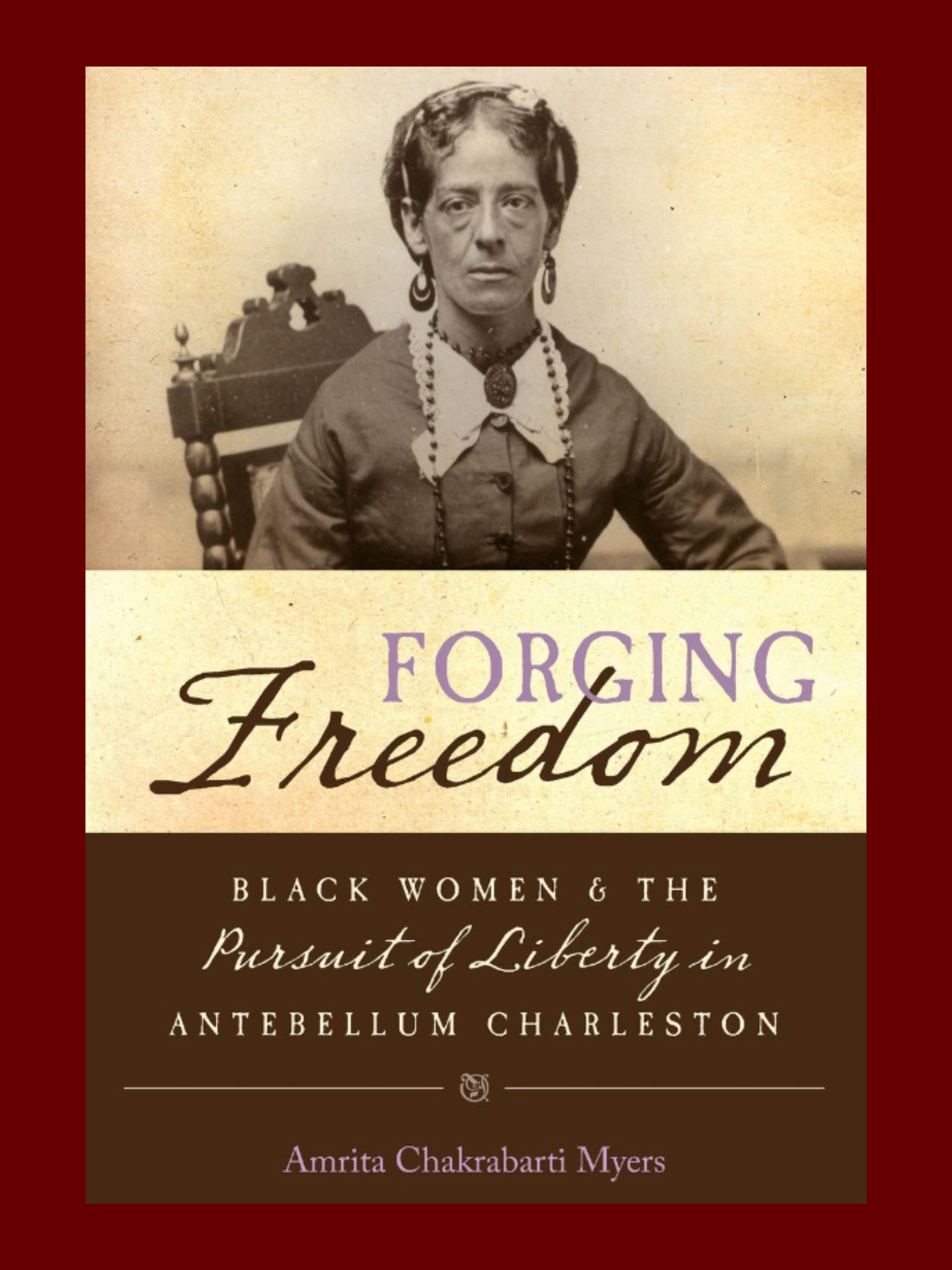
*2024 Publication Award, Kentucky Historical Society
*Honorable Mention, 2024 Letitia Woods Brown Book Award, Association of Black Women Historians
*Shortlisted, 2024 Museum of African American History Stone Book Award
Award-winning historian Amrita Chakrabarti Myers has recovered the riveting, troubling, and complicated story of Julia Ann Chinn (ca. 1796–1833), the enslaved, mixed-race wife of Richard Mentor Johnson, owner of Blue Spring Farm and U.S. vice president under Martin Van Buren. Johnson never freed Chinn, but during his frequent absences from his estate, he delegated to her management of his property, including Choctaw Academy, a boarding school for Indigenous men and boys. This meant that Chinn, while enslaved, had substantial control over economic, social, financial, and personal affairs within the couple's world, including overseeing Blue Spring's enslaved labor force. Chinn's relationship with Johnson was unlikely a consensual one since she was never manumitted.
What makes Chinn's life exceptional is the power that Johnson invested in her, the opportunities the couple's relationship afforded her and her daughters, and their community's tacit acceptance of the family — up to a point. When the family left their farm, they faced steep limits: pews at the rear of church, burial in separate graveyards, exclusion from town dances, and more. Outliving Chinn, Johnson was ruined politically by his relationship with her, and Myers compellingly demonstrates that it wasn't interracial sex that led to his downfall but his refusal to keep it —and Julia Chinn — behind closed doors.
*If you’re a member of the media and need a review copy, please email Sonya Bonczek at sonya.bonczek@uncpress.org.
Available in paperback August 2025.
“Myers carefully stitches together the story of Julia Ann Chinn, the enslaved wife of Richard Mentor Johnson, Martin Van Buren’s vice president, recounting her life on his estate and the public controversy over their relationship."
— New York Times Book Review
"The [fascinating] story of a remarkable woman who experienced freedom and slavery simultaneously . . . . Myers has conducted arduous research, and she ably introduces a little-known yet important figure in American history . . . . A valuable addition to antebellum history."
— Kirkus Reviews
“Groundbreaking . . . . A deeply researched and elegantly written biography."
— Ms. Magazine
"In this engrossing book, Myers sheds light on an open secret in U.S. history, the relationship between Vice President Richard Mentor Johnson and his enslaved wife, Julia Chinn. Meticulously researched and powerfully narrated, Myers's work carefully unearths the ghosts of our interracial past that continue to haunt us today."
— Manisha Sinha, author of The Slave's Cause: A History of Abolition
Forging Freedom: Black Women and the Pursuit of Liberty in Antebellum Charleston
In Forging Freedom: Black Women and the Pursuit of Liberty in Antebellum Charleston (UNC Press, 2011), Amrita Chakrabarti Myers analyzes the ways in which Black women in Charleston acquired, defined, and defended their own vision of freedom. Drawing on a wide array of primary sources, including wills, tax records, church registers, lawsuits, and more, Myers creates detailed portraits of individual women while exploring how Black female Charlestonians sought to create a fuller freedom by improving their financial, social, and legal standing.
“A carefully argued work that makes an invaluable contribution to the larger historiography of African American women…Any academic, student, local or regional scholar interested in Urban America, Women’s History, Antebellum South, and African American History will find value in this study.”
— Southern Historian
“Myers’s compelling study makes a significant contribution to this literature, drawing much-needed attention to the significance of the urban environment in shaping ideas of freedom in the pre-Civil War South and to the particularity of women’s experiences.”
— Journal of Southern History





